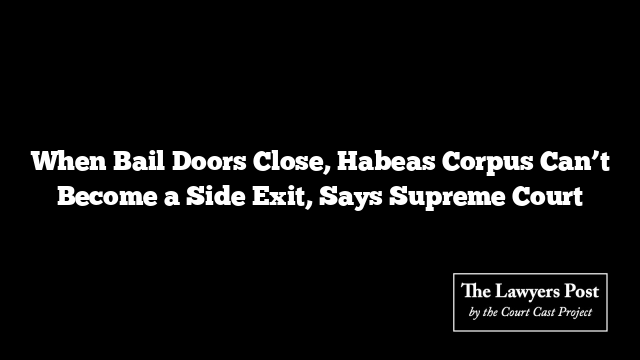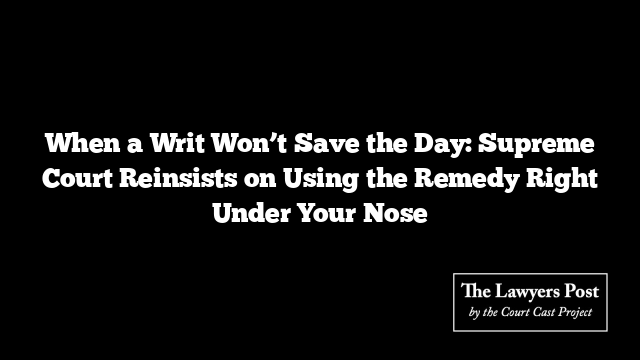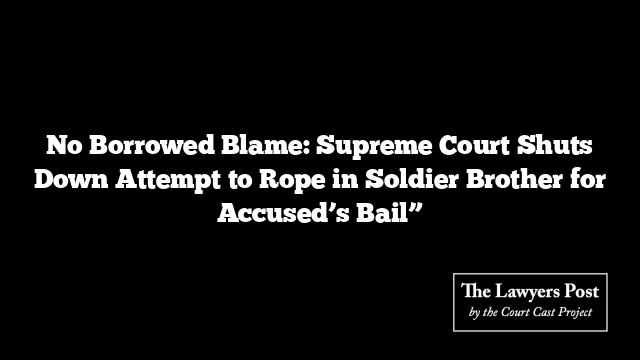In a sharply worded rebuke, the Supreme Court dismantled a Madhya Pradesh High Court order that had sprung an accused man from custody through a habeas corpus petition—despite four failed bail attempts. The apex court didn’t mince words, calling the High Court’s approach “shocking to the conscience” and wholly alien to established legal principles.
The case traces back to Jibrakhan Lal Sahu, booked in 2021 for cheating and criminal breach of trust in Bhopal. Arrested in late 2023, chargesheet filed soon after—routine steps. What followed was less routine: four trips to the High Court seeking bail, all dismissed between January and May 2024.
Then came an unexpected turn. Sahu’s daughter approached the High Court through a habeas corpus plea, arguing that his continued custody was illegal—framed partly around the family’s inability to approach higher courts. In October 2024, the High Court agreed and ordered his release on a modest personal bond.
The State challenged the decision, and the Supreme Court swiftly stayed the order, remarking that the use of habeas corpus in such circumstances was “prima facie shocking.” Even then, Sahu remained out until October 25, months after the stay.
In its final decision, the Supreme Court shredded the High Court’s reasoning. Custody following arrest in a criminal case—combined with repeated bail rejections—cannot be branded unlawful detention, it said. The High Court, according to the Bench, had effectively re-heard a bail matter under the guise of a habeas corpus petition, something the law does not permit.
The Court warned that allowing such shortcuts would derail the criminal justice process, creating a dangerous loophole where habeas corpus becomes a backdoor bail remedy. To prevent the “evil” from spreading, the Court made it clear: detention based on a valid criminal case isn’t unlawful simply because bail was denied multiple times.
Since Sahu has now surrendered, the Supreme Court left the door open for him to seek bail again—but reminded that any such request must be judged afresh by the proper court, strictly on legal merit, not sympathy or procedural detours.





